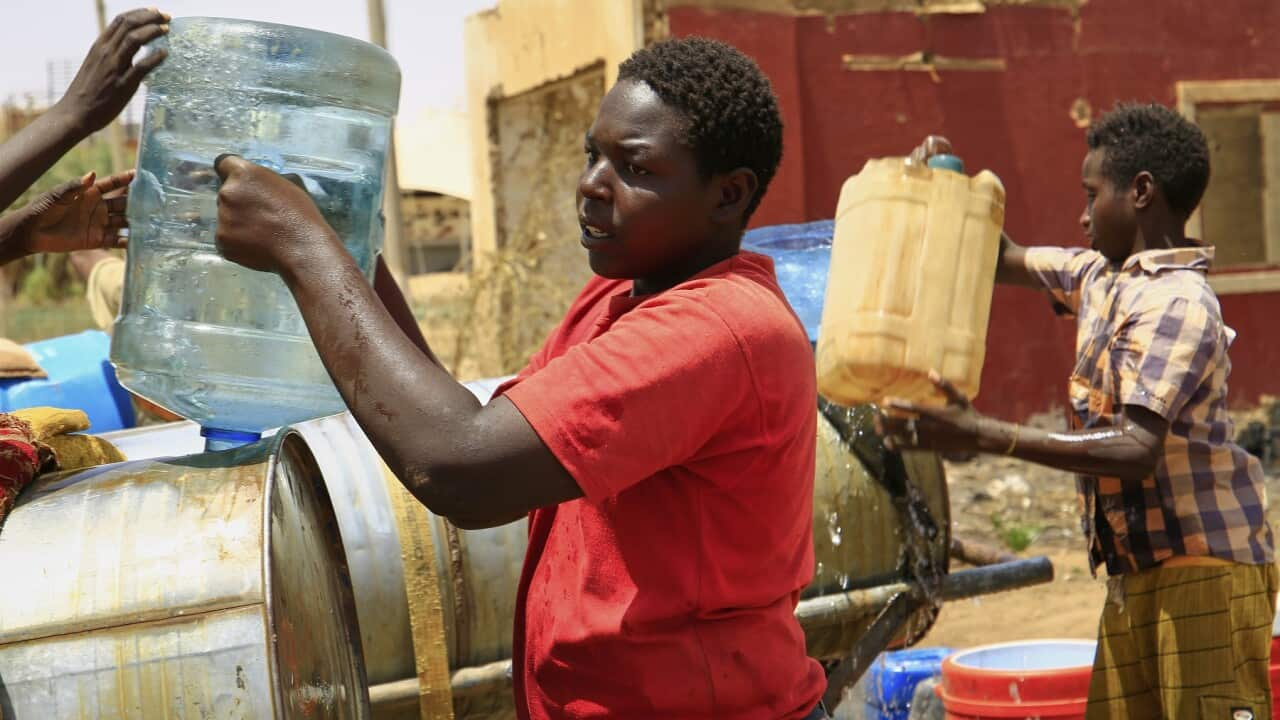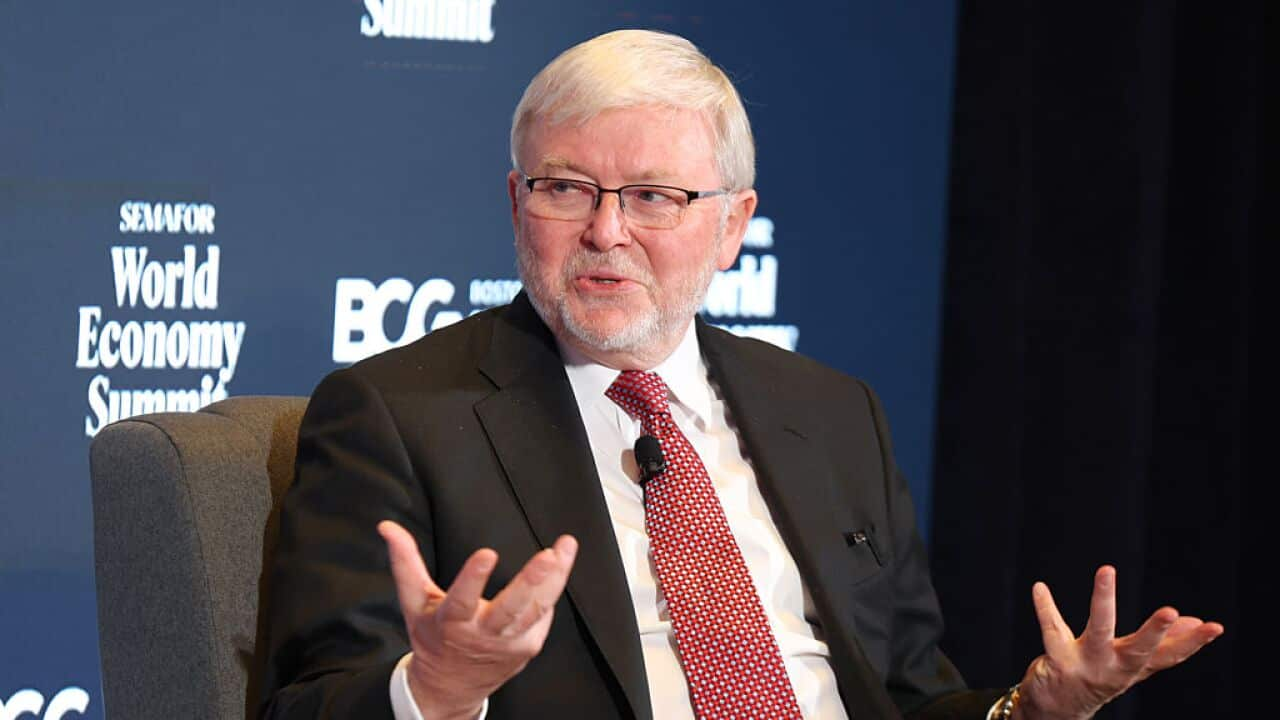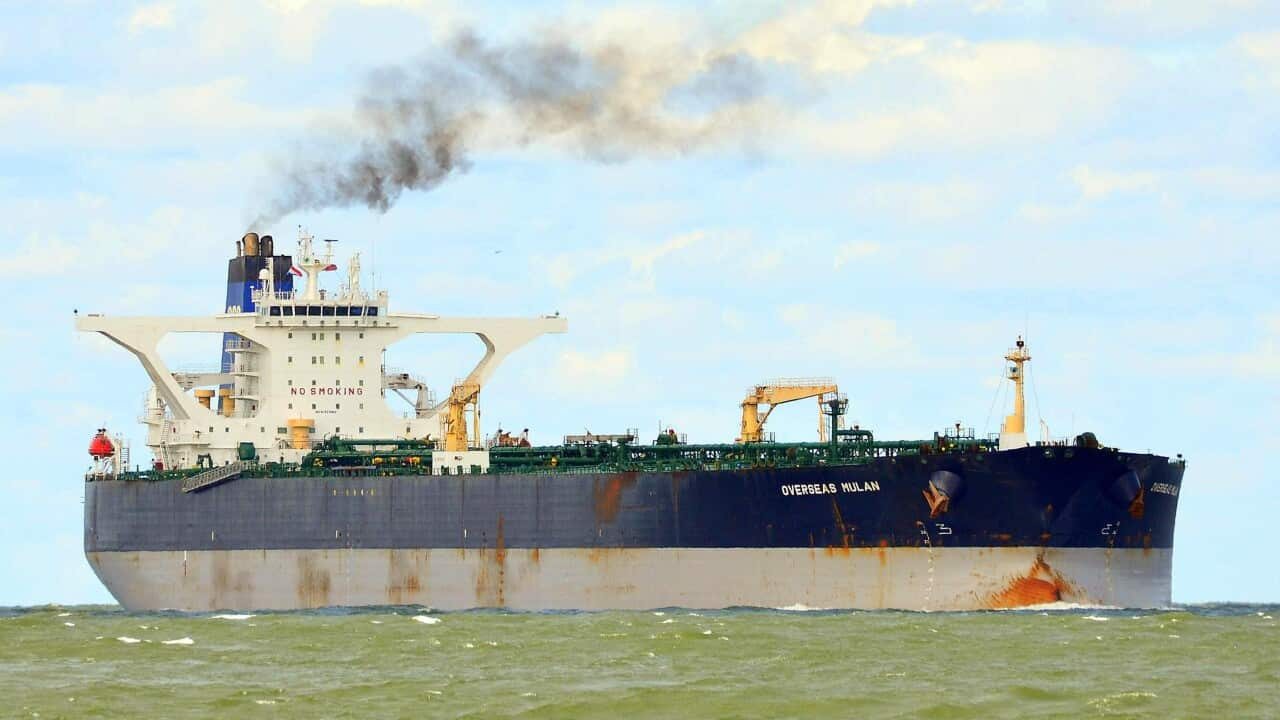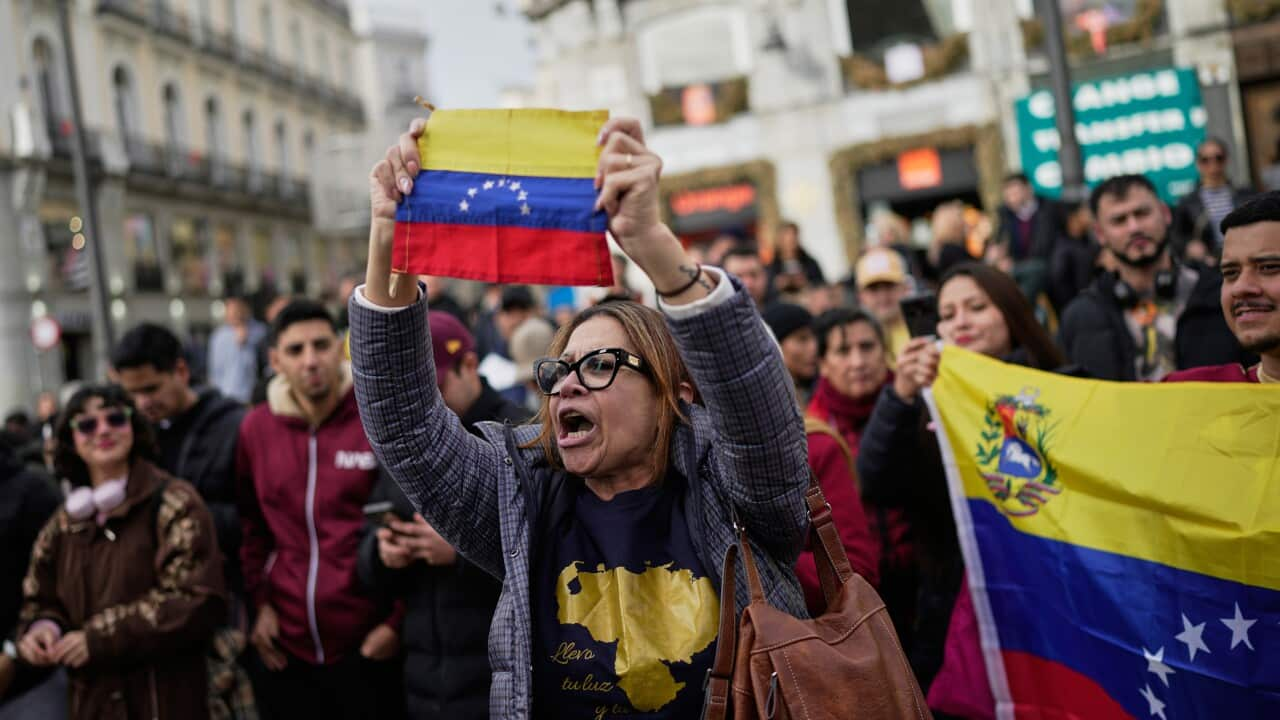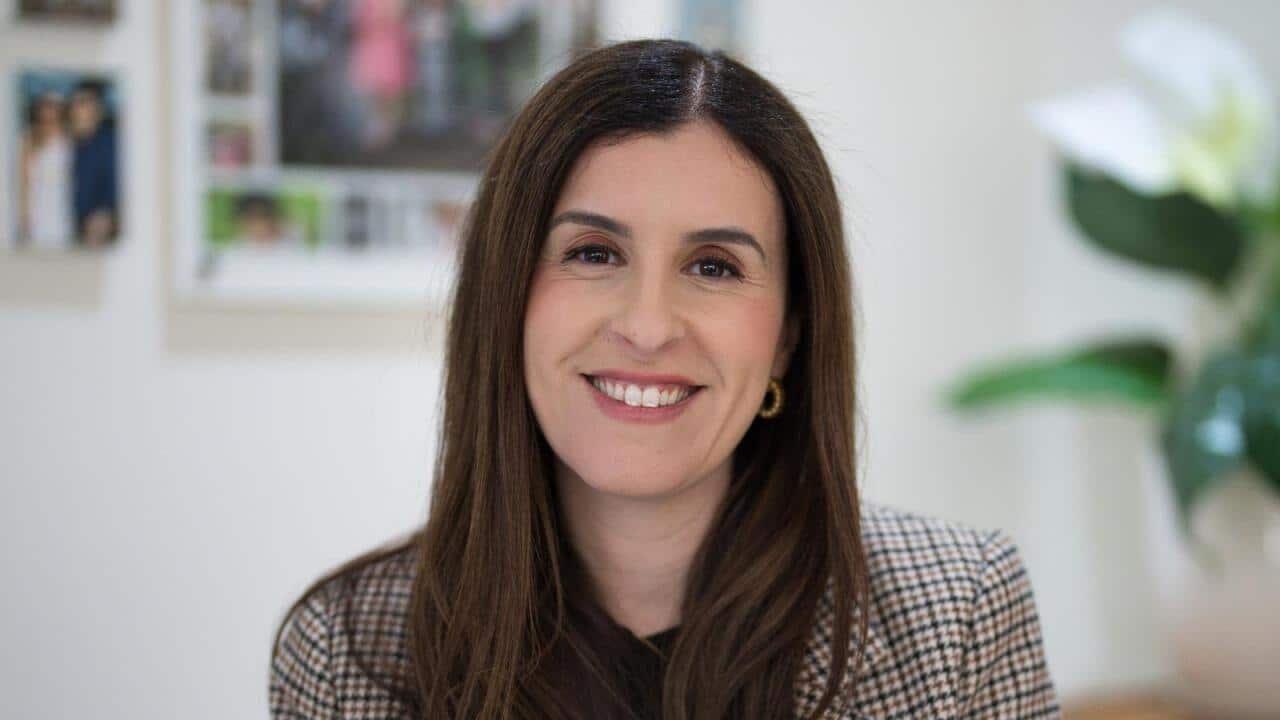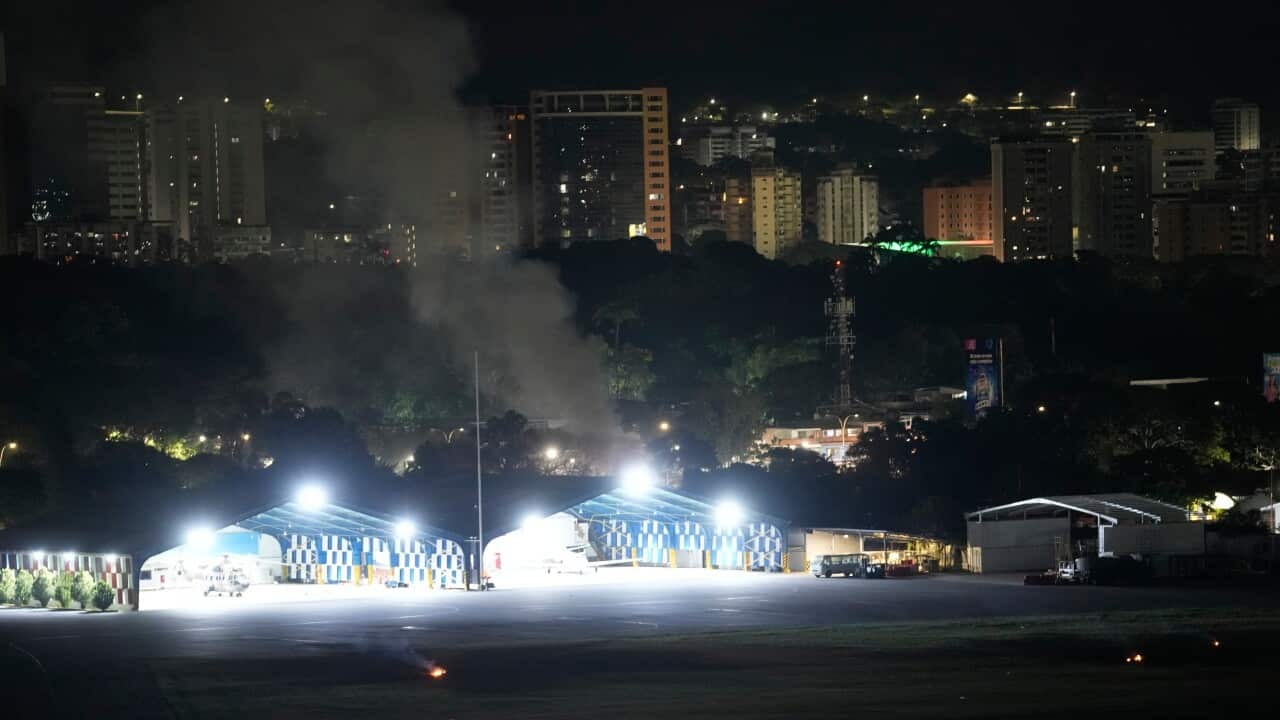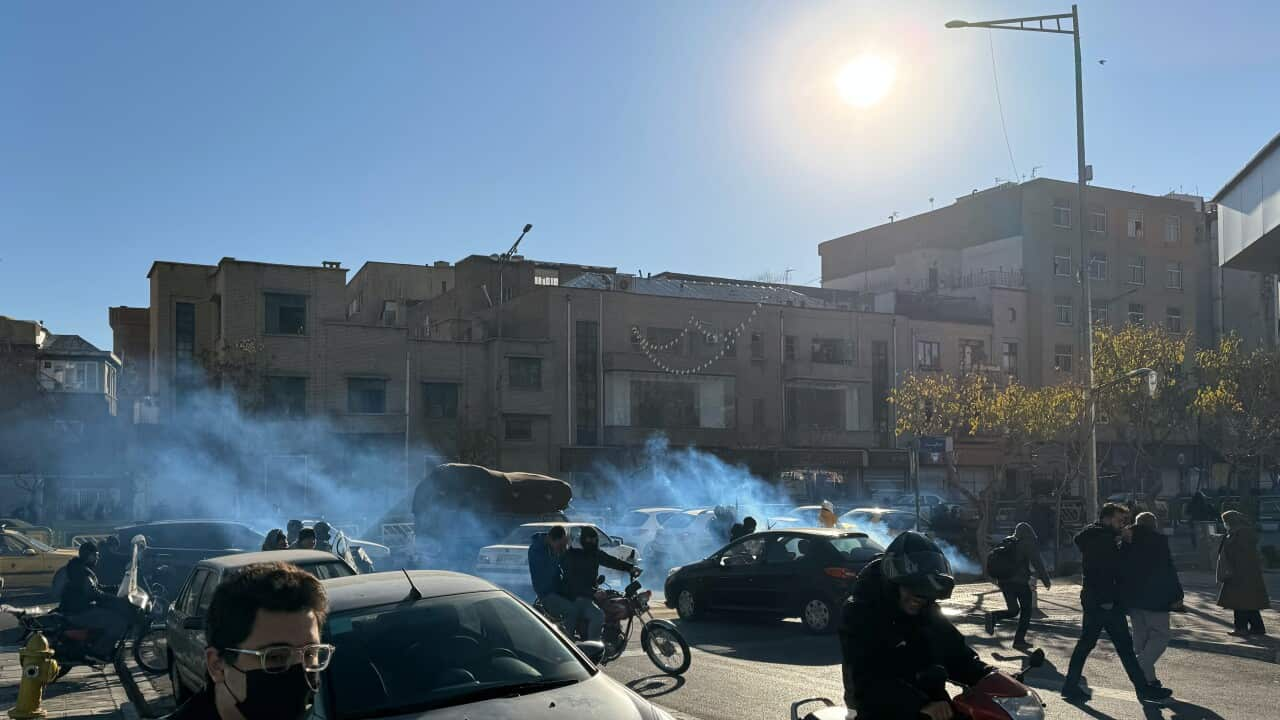TRANSCRIPT
The world's largest humanitarian crisis in Sudan has just gotten worse with disease sweeping the vulnerable population.
Sudan’s Ministry of Health reports 172 people have died from cholera in the past week as the disease spreads rapidly in the war-torn country.
World Vision estimates there's been 11,000 suspected cases of cholera since the outbreak begun, with 90 per cent of the cases centred around the capital Khartoum.
Dr Ahlam Ibraheem, founder of the Sudanese Australian Health and Wellbeing Association, tells SBS the two-year-old civil war in Sudan has had a huge impact on access to clean water and health care.
"So cholera is waterborne disease due to the lack of clean water and also the compromising access to sanitation and healthcare. Because of this complete collapse of the health system, lack of the simple medications, lack of the IV fluids, we are seeing people dying in the streets."
Last month, Sudan entered its third year of a devastating civil war with more than 150,000 people estimated killed, over 14 million displaced from their homes and close to 25 million people facing acute food insecurity.
The fighting between the Sudanese army and the paramilitary Rapid Support Forces has destroyed most health facilities across the country.
Drone attacks on power stations, fuel depots and dams near the capital Khartoum have knocked out power and running water, forcing locals to drink contaminated water and risk catching disease.
Eva Hinds from UNICEF Sudan tells SBS there has been an explosion of cholera cases in the past week with more than 2,700 locals falling ill.
"We're seeing a ninefold increase in just 10 days. So that means that the cases have surged from around 90 cases to more than 800 a day."
Ms Hinds says the world's largest displacement crisis has made the population more vulnerable to fast-moving disease outbreaks.
"In these displacement sites and camps, services are very scarce so there's very limited access to healthcare, very limited access to safe and clean water. People living in very crammed spaces. And, of course, these stop over places are often a breeding ground for diseases."
Dr Hawazin Mirghani Mohammed and Fazli Kostan from Médecins Sans Frontières are on the ground in Sudan.
They tell SBS that even in the capital, access to doctors is incredibly scarce.
MIRGHANI: "For people here in Khartoum it's an accessibility issue. So people can not access the health care easily. If there is no health service in their area, that means they will not come probably. That's why there is a high mortality. There is a high number of severe cases."
KOSTAN: "For example a 15 years old child that died because of late arrival because lack of access to health care."
United Nations spokesman Stephane Dujarric says the limited health care system has been further overwhelmed by a resurgence of other diseases such as malaria and dengue fever.
"In addition, a recent inter-agency assessment by our partners and ourselves found high rates of acute respiratory infections, of malaria and of skin conditions. Among these returnees, the lack of mosquito net, the lack of proper shelter, the lack of water, the lack of sanitation, and the lack of hygiene facilities is significantly increasing the risk of disease outbreak."
Sydney-based doctor Ahlam Ibraheem is calling on the Australian federal government to boost aid to the region to help alleviate the medical burden.
"We must act collectively to stop the suffering and to prevent further devastation. We're asking all the international community to provide this humanitarian assistance to support the health system in Sudan and to work together towards a peaceful resolution."
